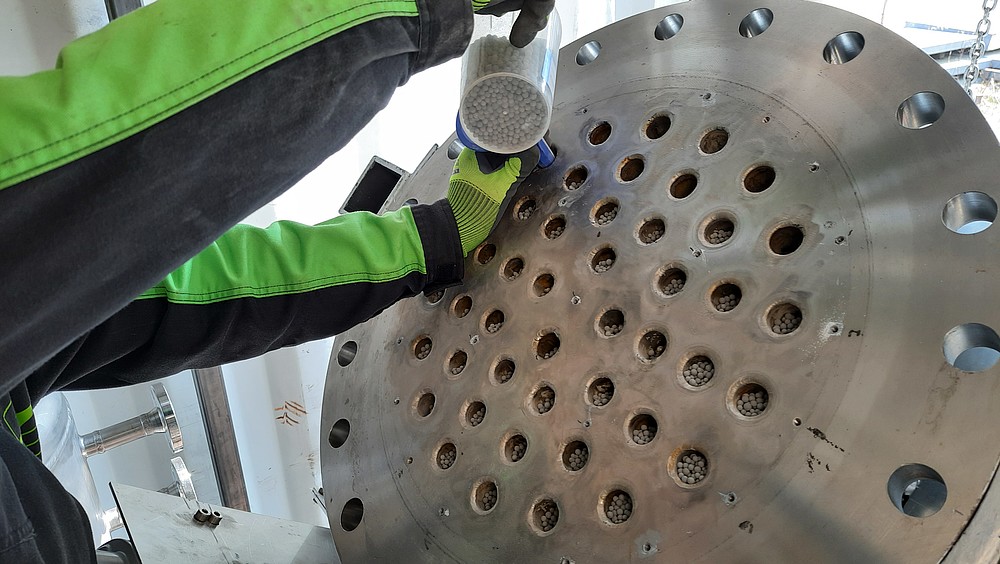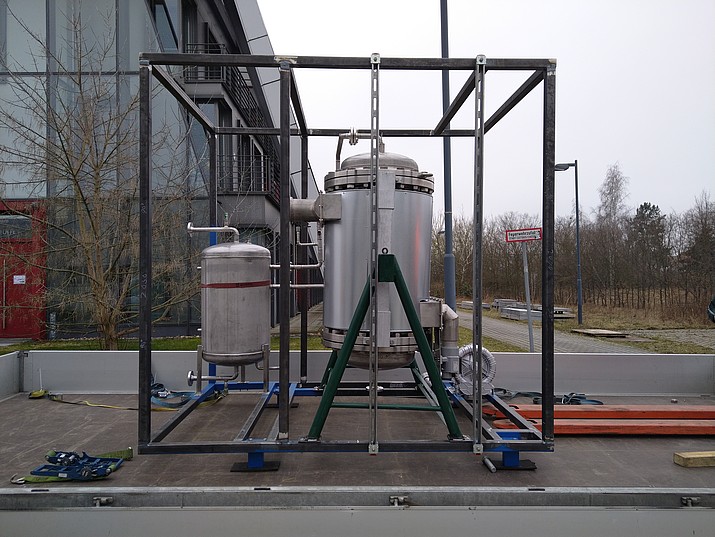How we can bind carbon dioxide from combustion processes


In addition to the efforts to use renewable raw materials in the industry in a sustainable manner for the production of natural fiber-reinforced plastics (NFRP), the LaNDER³ partnership has also set itself the goal of reducingCO2 emissions and using renewable energy sources.
The energetic conversion and material use of fossil fuels can be identified as the main cause of man-made greenhouse gas emissions. Renewable energy sources have great potential to reduce the need for fossil fuels. Some of the technologies required for the generation of renewable energy are no longer only used for the intermediate storage of energy from renewable sources, but above all for linking various processes and sectors of industry. This means that new technologies can contribute to the decarbonization of a large number of manufacturing companies.
Researchers in Impulse Project 4 - Catalytic Methanation are working on such a new technology for generating renewable energy and the associatedCO2 savings potential. The focus of research in Impulse Project 4 is on the comprehensive and sustainable use of plant resources for energy production. Here,CO2 is to be washed directly from the environment or bound as a partial product of biogas plants, such as in the third-party funded project Mobile High-Performance Biogas Plant.
The research group is using the Sabatier process for implementation, in which methane and water are produced fromCO2 and hydrogen in a reactor built by Rublic + Cancler GmbH in Heidenau. This works by using a catalyst at the appropriate pressure and temperature. The resulting methane can then be used as an energy source for other applications, stored or transported.
With the research in impulse project 4, the joint project LaNDER³ is making a major contribution to the environment by providing plant technology for industry that bindsCO2 and green hydrogen in a known and usable recyclable material.
Catalytic methanation is therefore one of the bridging technologies for achieving climate neutrality in the coming decades.